03:09
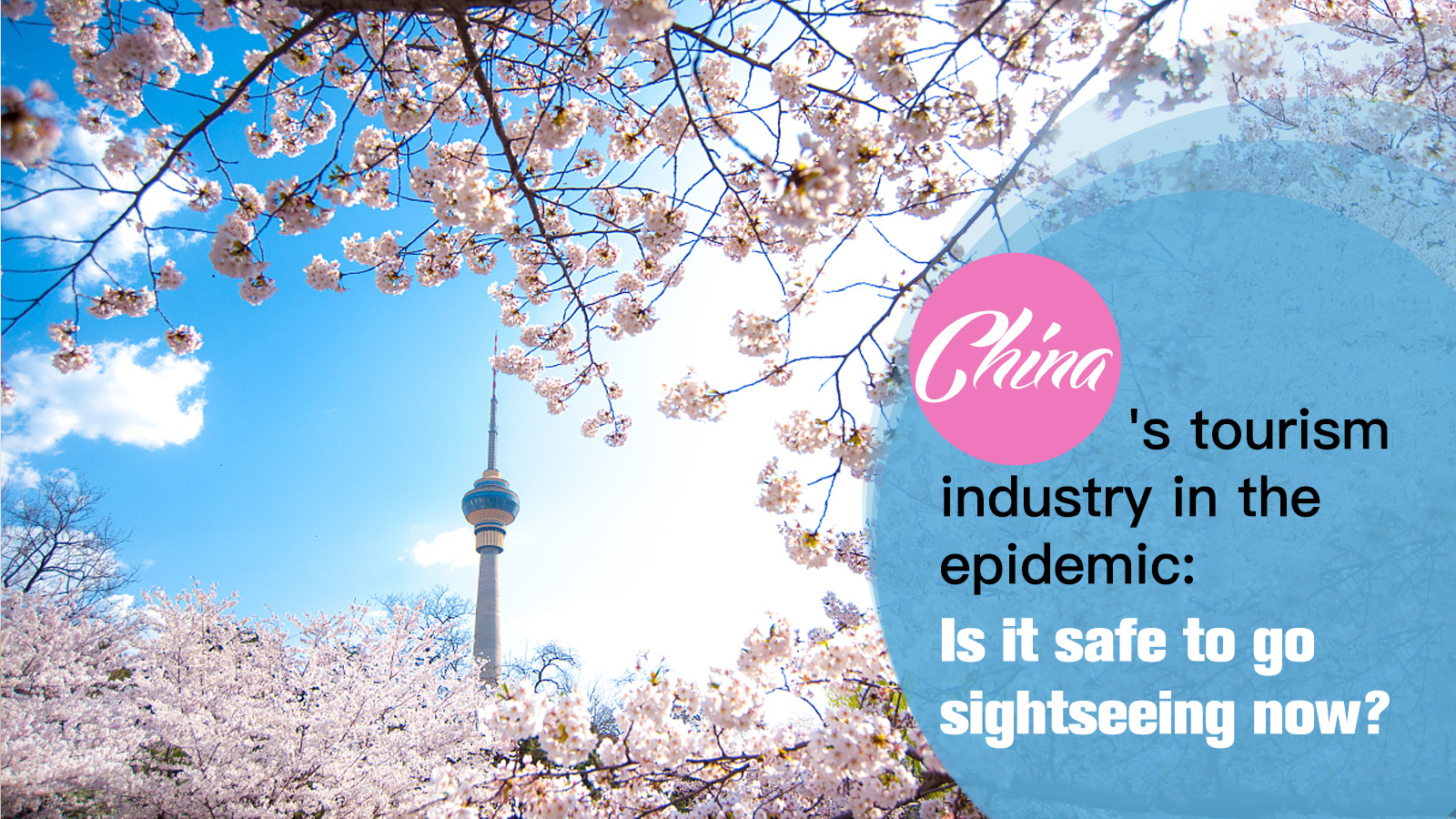
China's Ministry of Culture and Tourism issued guidelines to support tourism industry resumption at the end of February. Half of China's provincial museums reopened on March 24 and some 20 provinces and cities across China have resumed local tourism operations.
Is it safe to go sightseeing now? How do you ensure the safety in terms of epidemic prevention at the same time? Follow CGTN and find out.
Popular scenic spots reopened
Beijing residents are relishing cherry blossoms that have bloomed with the arrival of spring. As the intensity of the epidemic lessens, people have started frequenting parks, albeit with strict protective measures.
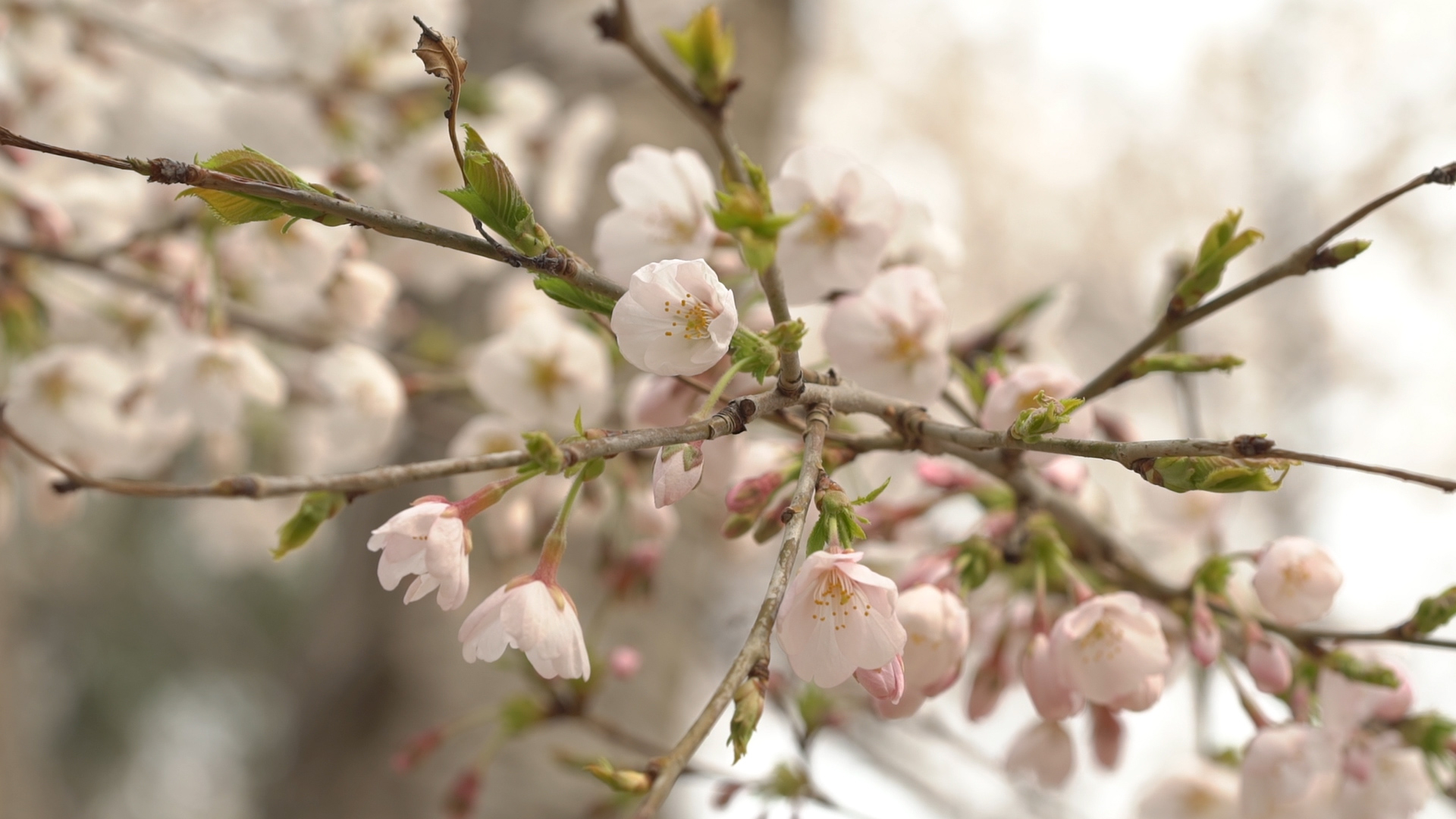
Cherry blossom in Beijing's Yuyuantan Park. /CGTN
Cherry blossom in Beijing's Yuyuantan Park. /CGTN
"This is my first visit to Yuyuantan Park and I find the cherry blossoms very beautiful. We stayed at home for a long time during the epidemic outbreak and would now like to go out for some walk," said Miss Guo, a tourist to Beijing's Yuyuantan Park.
According to Ctrip.com, one of China's biggest online travel agencies, more than 2,000 popular scenic spots across the country had been reopened by the end of March 16, among which are more than 100 5A-level scenic spots such as Hangzhou Xixi Wetland, Zhouzhuang Ancient Town in Jiangsu Province, and Longmen Grottoes in Henan Province.
The cities with the largest number of reopened tourist attractions are Sanya, Suzhou, Ningbo, Hangzhou, Xiamen, and Lishui. Natural scenery and historical sites account for the highest proportion among the first batch of scenic spots to be reopened, followed by animal and plant parks and urban sightseeing spots.
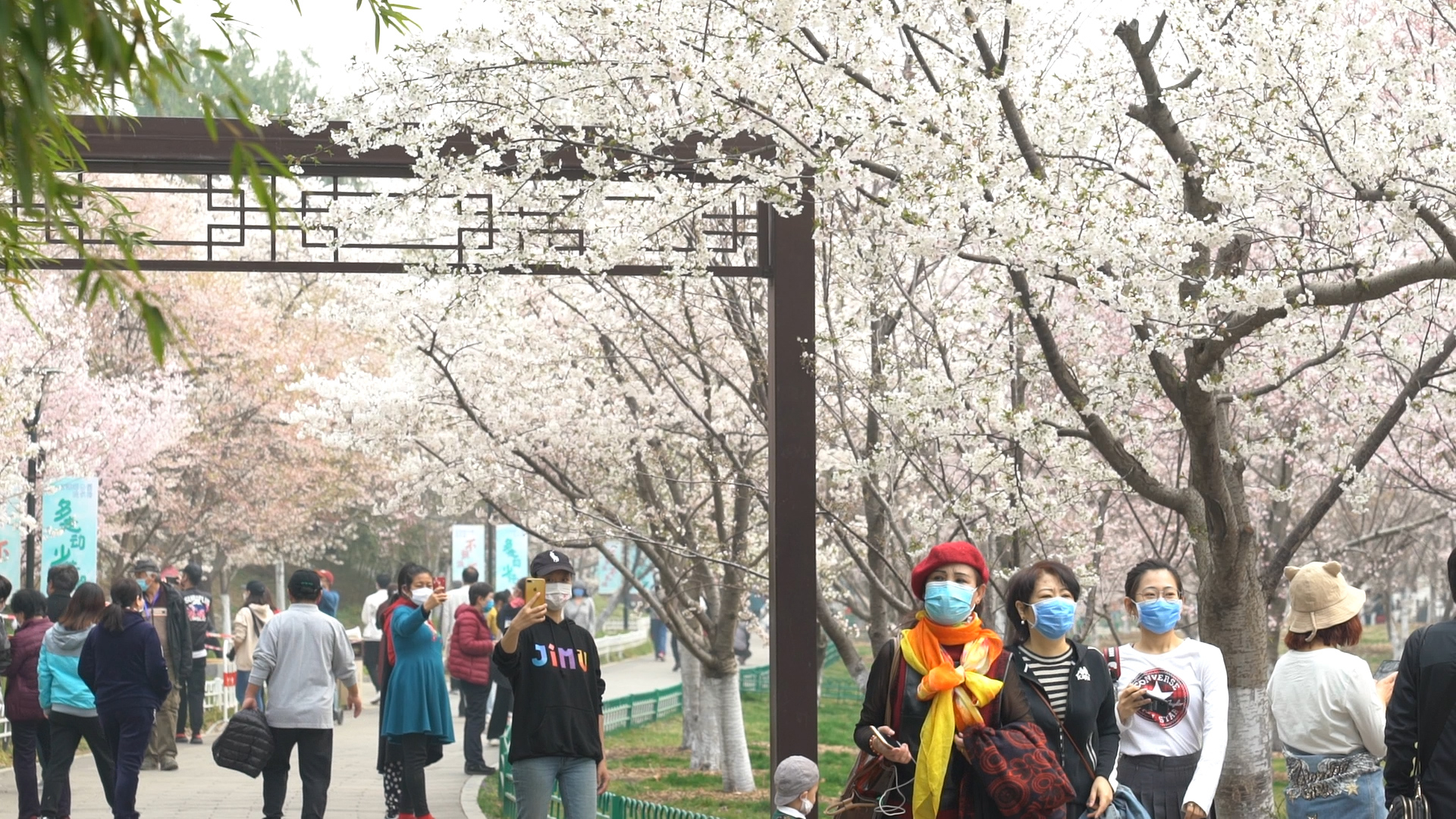
Visitors appreciate cherry blossom in Beijing's Yuyuantan Park. /CGTN
Visitors appreciate cherry blossom in Beijing's Yuyuantan Park. /CGTN
Intelligent epidemic prevention measures to ensure the health and safety of tourists
Though the beauty of cherry blossom has attracted scores of visitors, others have expressed concerns over going to the park now, saying "the epidemic is not over yet after all."
While the industry gears up for post-epidemic opportunities, there are no signs of relaxation in prevention. Measures such as registration of personal information, regular disinfection, body temperature checks and cap on daily visitors are all in place at all tourist attractions, to lower the risk of infection.
Dong Yali, deputy secretary of the Party committee of Yuyuantan Park, told CGTN that from March 14 to April 15, visitors need to book tickets online at least one day in advance. When the number of tourists reaches 30 percent of the maximum carrying capacity, visitor flow is capped. Infrared body temperature monitoring is carried out at the entrance. Other measures have also been taken, such as the one-meter distancing in the waiting line and making sure visitors remain dispersed.
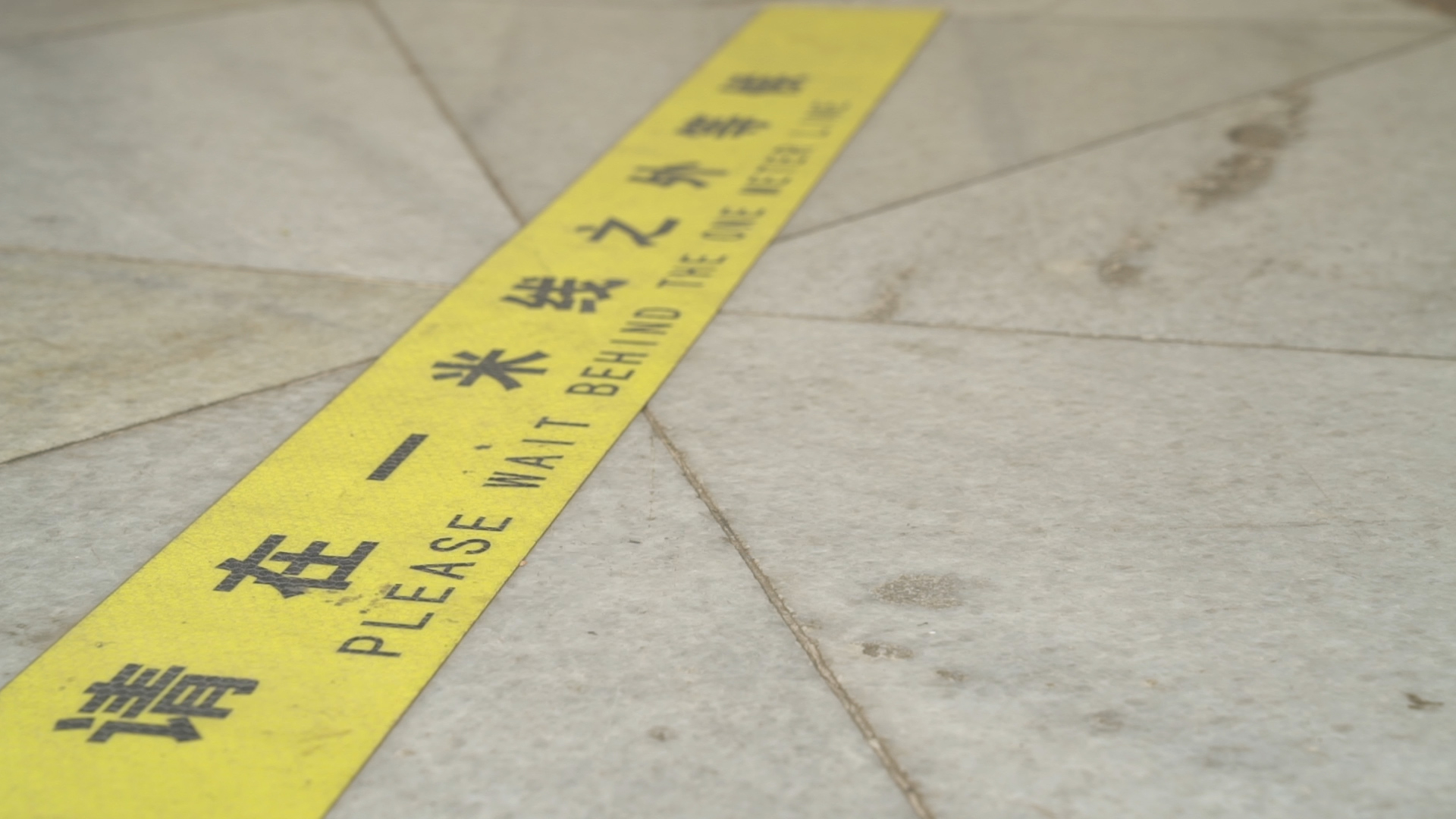
The implementation of a one-meter waiting line is making sure visitors keep a safety distance. /CGTN
The implementation of a one-meter waiting line is making sure visitors keep a safety distance. /CGTN
"Due to the above control measures taken this year, the overall number of visitors has dropped from previous years," Dong said.
In southwestern Chongqing City, "travel code" has become a health pass for tourists at any scenic spot. This kind of code can track real-time data of epidemic prevention and control in scenic spots by collecting tourist's health information and travel records.
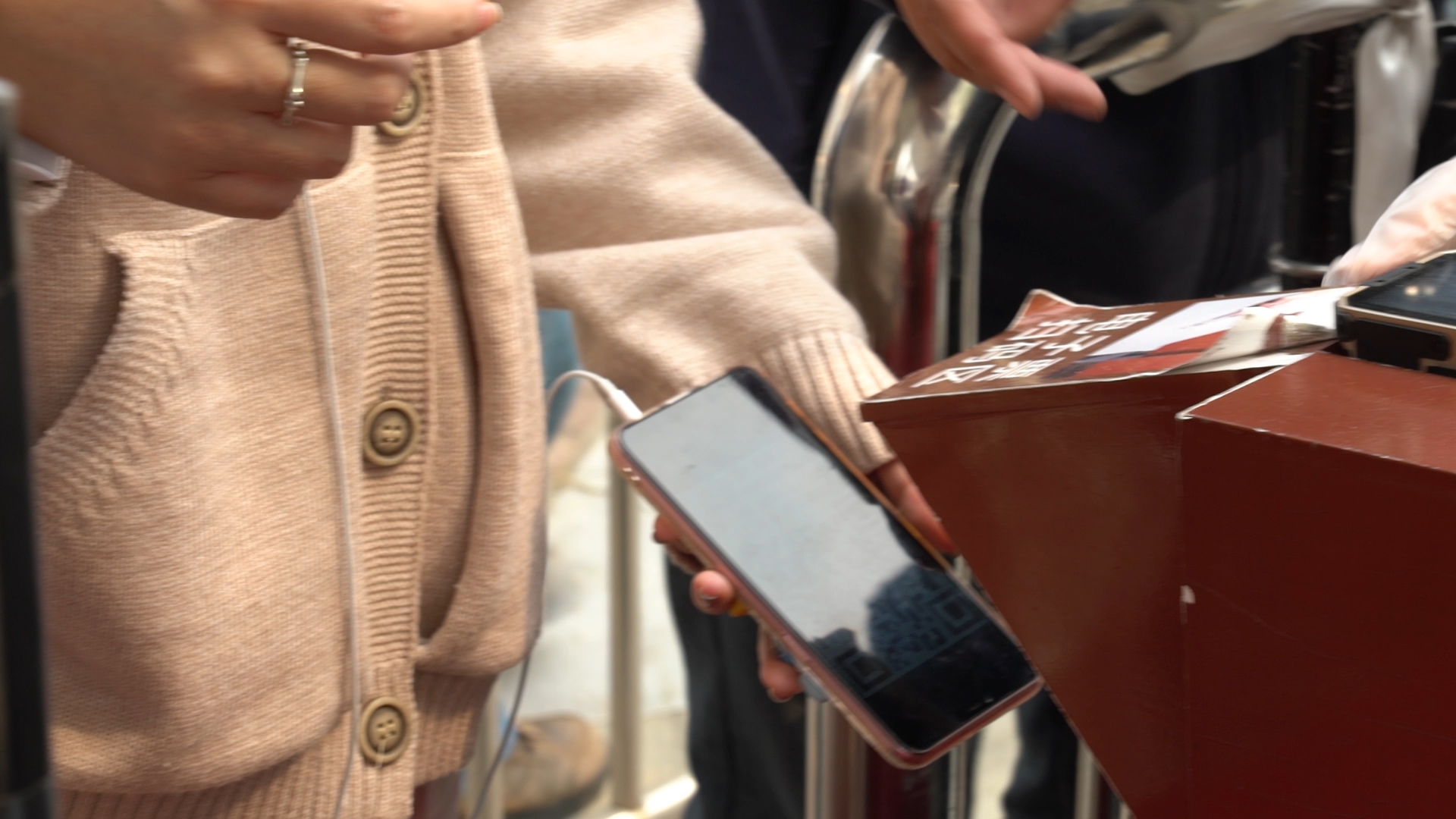
A visitors is seen scanning QR code to enter a park. /CGTN
A visitors is seen scanning QR code to enter a park. /CGTN
CGTN reporter learned from the Beijing Gardening and Greening Bureau that more parks and scenic spots still closed will gradually reopen.
Due to forest fire prevention regulations, forest parks in Beijing will be reopened from April to May as per previous practice. Wetland parks will reopen after the birds' migratory season. While geographic parks and historical sites will be opened after the Qingming Festival.
Museums in Beijing will not be reopened until further notice, according to the municipal government.